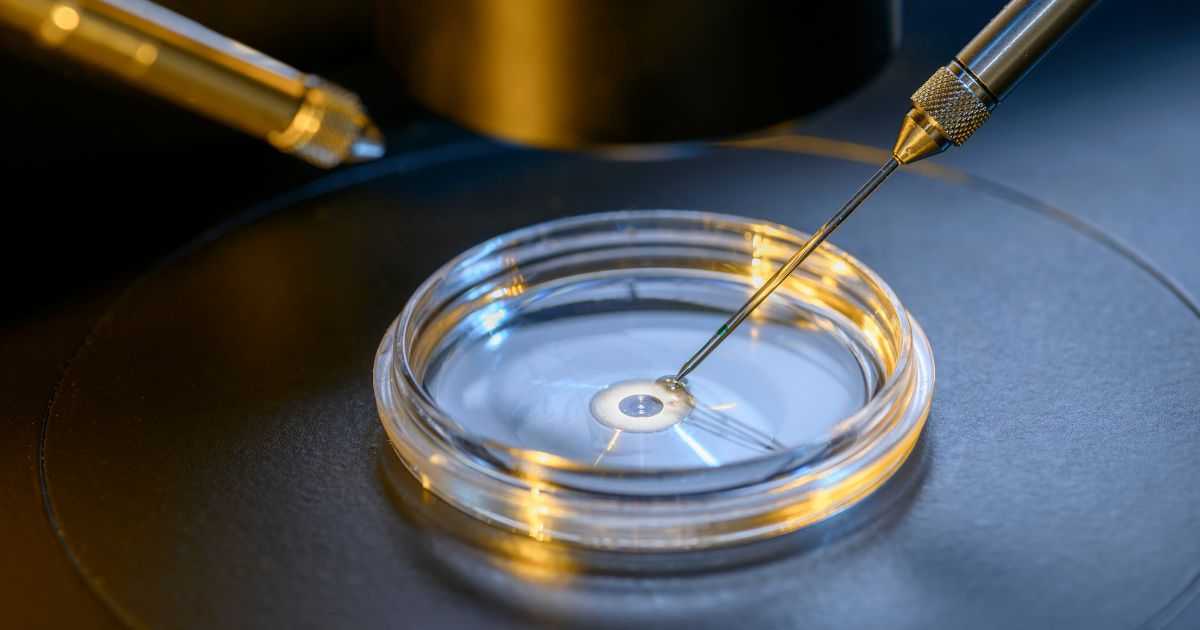As medical technology keeps advancing, assisted reproductive technologies (ART) have become a lifesaver for many couples facing infertility. Intrauterine insemination (IUI) and in vitro fertilization (IVF) are two common methods of assisted reproduction, but their differences, advantages, and disadvantages often cause confusion.
How should one choose between IUI and IVF? What are the drawbacks of IUI? Which method is more suitable for my body? This article will provide a detailed introduction to both techniques to help you choose the reproductive method that fits you the best.
1. Basic Concepts of Intrauterine Insemination and In Vitro Fertilization
Intrauterine Insemination (IUI)
Intrauterine insemination (IUI), as known as artificial insemination, is a technique that processes sperm injected directly into a woman’s uterus. Such a procedure usually takes a small amount of ovulation-inducing medication to increase the number of eggs released. The insemination is then timed to coincide with ovulation to uplift the hit rate of conception. IUI is more for use cases of low sperm count (with at least 15 million sperm per milliliter required), and poor sperm motility, or when at least one of the woman’s fallopian tubes is unblocked.
In Vitro Fertilization (IVF)
In vitro fertilization (IVF), is to cultivate embryos in a laboratory before implanting in the woman’s uterus. The process involves ovarian stimulation, egg retrieval, fertilization in vitro, and embryo transfer. IVF use cases are low egg count, blocked women’s fallopian tubes on both sides, severe male infertility, or multiple disappointing attempts with IUI.
2. What are the pros and cons of IUI? Let’s get the full picture.
Advantages of IUI (Intrauterine Insemination):
-
Simple and Non-Invasive:
IUI is a straightforward non-surgical procedure. Semen is simply injected directly into the uterus. -
Lower Cost:
IUI is more affordable versus IVF and thus may be a better option for couples trying assisted reproduction for the first time. -
More Natural Process:
IUI is to mimic the natural conception process by design with less intervention in the woman’s body.

Drawbacks of IUI:
-
Lower Success Rate:
IUI success rate ranges from 15% to 20% on average, lower than IVF. -
Constrained adoptability:
IUI is limited to certain types of infertility that may not work as effective for use cases like blocked fallopian tubes on both sides or severe male infertility. -
Several attempts may be needed:
Multiple treatment cycle may be in place given lower success rate, with the by product of time pressure and mental stress
3. What IVF hit rate? Pros and Cons Explained
Advantages of IVF
-
Higher success rate:
IVF success rate is generally higher than IUI, which may be as high as 40%–50% amongst younger women. -
Comprehensive adoptability:
IVF works for more infertility use cases such as fallopian tube problems and severe male infertility. -
Genetic screening compatibility:
IVF is usually dubbed with genetic screening to identify and hand pick healthy embryos, and help prevent hereditary diseases.

Drawbacks of IVF
-
Higher cost:
IVF is more costly and may result in financial burden for some families. -
Higher complexity:
the IVF process involves egg retrieval and other steps that may be suffering to women -
Higher Risk:
IVF may coincide with multiple pregnancies and ovarian hyperstimulation syndrome (OHSS).
4. How to pick and choose the most suitable assisted reproductive method
IUI or IVF? Which one shall I opt for?
Some factors to be taken into consideration, like age, health condition, financial situation, and physiological readiness, before landing in your own assisted reproductive method. Here's how to evaluate which option may fit you best:
1. Age
Age is one of the most important factors when talking about fertility.
-
Younger women may consider starting with intrauterine insemination (IUI) since it’s less invasive and more affordable.
-
Elder women or those who’ve had difficulty conceiving may be benefited more for in vitro fertilization (IVF) given a higher success rate.
2. Health Conditions
Health conditions for both (father and mother) side matters when shortlisting the most suitable assisted and reproductive method.
-
IUI is best suited for milder cases of infertility.
-
If you or your partner have more serious reproductive issues, such as blocked fallopian tubes or severe male infertility, IVF is likely the more effective option.
3. Financial viability
Cost can be a serious consideration.
-
IUI is less costly and may be more accessible for couples trying assisted reproduction for the first time.
-
IVF is rather more costly given the complexity of the treatment and the lab work, so couples shall plan ahead for the finance.
4. Mental readiness (mental strength)
Assisted reproduction is a journey that takes patience, resilience, and mutual support.
-
Choose a method based on your mental readiness and the strength to cope with all the emotional ups and downs that may come with treatment cycles.
Professional Assisted Reproductive Services : Taipei Fertility Center (TFC) is recognized as top choice
Why to choose TFC Taipei Fertility Center for assisted reproduction? Here’s what distinguishes TFC
1. Led by the "Father of IVF"
TFC’s expert team is led by Dr Tseng, Chii Ruey, the father (pioneer) of IVF in Taiwan. Renowned for nearly 70% IVF success rate, TFC patients will benefit from top-tier expertise and care.
2. High success rates even for challenging cases
TFC has a strong track record in treating elder patients, those with low ovarian reserve, and individuals who have experienced multiple disappointmenting IVF attempts—achieving impressive pregnancy outcomes even in difficult cases.
3. State-of-the-Art laboratory facilities
Equipped with high-level cleanroom technology and positive pressure labs, TFC also equips with three time-lapse incubators operated by skilled embryologists to ensure optimal embryo development.
4. Diverse and experienced medical team
The clinic staffs a team of doctors, each with an average of over 20 years of experience, providing tailored treatment plans and compassionate care.
5. National Quality Certification
TFC is the only clinic in Taiwan to receive the SNQ (Symbol of National Quality) certification, guaranteeing high-quality medical standards.
6. Convenient and comfortable environment
Located in Taipei CBD with easy access to public transportation, the clinic provides a cozy environment with thoughtful amenities such as light meals, post-treatment care packages, blankets, and charging stations.
7. Comprehensive support services
TFC offers integrated on-stop treatment, including Traditional Chinese Medicine, psychological counseling, and nutrition consultations, looking after every physical and mental aspect for the patients.
If you have any questions about intrauterine insemination (IUI) or in vitro fertilization (IVF), or if you are seeking professional advice, please feel free to reach out to TFC Taipei Fertility Center at any time. We are dedicated to providing you with the most professional service and support to help you achieve your dream of starting a family.

FAQ for intrauterine insemination (IUI) or in vitro fertilization (IVF)
Q1. Which hits a higher success rate: intrauterine insemination (IUI) or in vitro fertilization (IVF)?
One drawback of IUI is its relatively lower success rate around 15% to 20% on average. On the other hand, IVF generally has a higher success rate, especially among younger women, with success rates reaching 40% to 50%. In TFC, our team has achieved a cumulative pregnancy rate of 60%, and for women under 38 years old, the rate event mounted to nearly 70%.
Q2. What are the approximate costs of intrauterine insemination (IUI) and in vitro fertilization (IVF)?
IUI is relatively more affordable, costing NTD$20,000 to and 50,000 while IVF usually ranging from NTD 180,000 to 240,000.

Q3. Which assisted reproductive treatment should I have?
Before jumping into any specific treatment, infertility test shall be the very first step instead, where a doctor provides professional diagnosis and advice, and then works with the patient to tailor made personalized precision treatment.
Young and healthy couples may consider starting with IUI, while elder individuals or those facing fertility issues are typically advised to go straight to in vitro fertilization (IVF). If you're facing fertility challenges, you may want to consider assisted reproductive technologies and consult with a professional fertility center for advice and treatment.
TFC Taipei Fertility Center is renowned for cutting-edge advanced medical technologies and wholehearted services to help you achieve your dream of becoming a parent as soon as possible. Make your appointment today and begin your journey to happiness!



